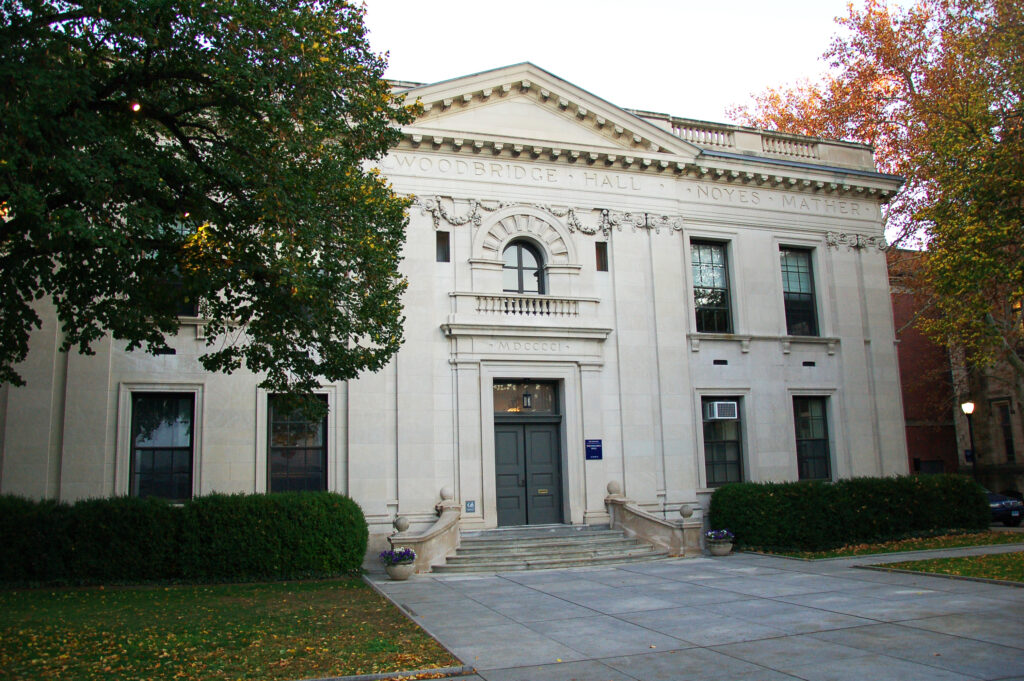News
Yale President-elect McInnis praised for past leadership, leaves Stony Brook divided over handling of campus protests

Aydin Akyol
Amid Yale’s announcement of Maurie McInnis GRD ’90 GRD ’96 as its subsequent president, McInnis’s departure from Stony Brook College underscores a four-year tenure marked by sturdy management however marred by current controversy over her dealing with of campus protests.
McInnis, who earned her grasp’s and doctoral levels within the historical past of artwork from Yale and held administrative roles on the College of Virginia and the College of Texas at Austin, has served as Stony Brook’s president since March 2020. After a nine-month presidential search, Yale’s Board of Trustees — of which McInnis is a member — introduced on Wednesday that McInnis will succeed outgoing College President Peter Salovey. Her time period begins on July 1.
McInnis’s tenure at Stony Brook has seen the college, which is a part of the general public State College of New York system, via an period of transformative progress. She is credited with efficiently seeing the varsity via the COVID-19 pandemic, serving to to acquire the designation of a “flagship” SUNY campus and securing a historic $500 million present from the Simons Basis in 2023.
Although extensively praised for her prowess as a fundraiser, McInnis has clashed with Stony Brook school members over campus free speech insurance policies in relation to campus activism. In April, the Information reported on school members who expressed discontent with McInnis’s unwillingness to interact with group considerations following the arrest of 9 college students at a pro-Palestine sit-in.
Extra just lately, McInnis has been criticized by college students and college for her dealing with of a pro-Palestine protests in which two school members and practically two dozen college students have been arrested early within the morning on Could 2. Within the following weeks, McInnis barely survived a movement to censure by Stony Brook’s College Senate, and her administration has come beneath fireplace for campus policing techniques perceived as overly aggressive and a scarcity of administrative transparency.
“There are numerous who will likely be unhappy to see [McInnis] leaving Stony Brook,” wrote Richard Larson, the president of the College Senate and a professor of linguistics. “And there will likely be others who’re deeply dissatisfied in her, dissatisfied that she and the small group of individuals advising her have been unable to discover a extra artistic, less-divisive answer to our challenges, and who will really feel that this departure is maybe for the most effective.”
Stony Brook school react to departure, mirror on McInnis’s tenure
McInnis was Stony Brook’s sixth president, and her four-year stint within the place would be the shortest non-interim tenure since that of the college’s first president in 1961.
Larson referred to the primary three years of McInnis’s tenure as “terrific,” highlighting a constructive response to the challenges posed by the COVID-19 pandemic, fundraising efforts, sturdy relationships with New York state legislature and the governor’s workplace and securing a $700 million bid to guide the “New York Local weather Change” on Governors Island. Going into the spring semester, he stated, McInnis boasted the very best campus survey scores for an administrator in “a few years.”
“Quick ahead 11 weeks or so, and he or she barely survived a Senate censure vote,” Larson stated.
Larson’s relationship with McInnis deteriorated within the last weeks of her presidency, notably after he obtained a “shock” inquiry from the Information in April that said McInnis might probably be into account for the Yale presidency. The Information had contacted Larson after McInnis had supplied him as a reference concerning her presidency at Stony Brook.
“Truthfully, we’re all a bit in shock to find that our president, whom we considered solely dedicated to Stony Brook and its future, is actively in search of a management place at one other establishment, particularly a personal one, after many declarations of dedication to public schooling,” Larson wrote in an April 17 electronic mail response.
That response, Larson stated, “initiated a gradual downhill slide” with McInnis and her workplace, who canceled all future conferences with Larson as Senate president and stopped responding to his texts and emails.
A number of professors instructed the Information that rumors about McInnis’s potential appointment at Yale had been circulating round Stony Brook’s campus for the previous month.
“The information is a shock however maybe not so shocking,” wrote Eric Zolov, the undergraduate director of Stony Brook’s historical past division. “I discover it irritating and destabilizing for her to sing the praises of public schooling solely to leap ship when a greater alternative arises.”
Zolov famous that for “at the least three of these years,” the College had “genuinely sturdy management.” He praised McInnis for serving to to “elevate SBU’s stature” and securing a “mandatory lifeline of funding from the Simons Basis.”
“Others might level to her calling within the police to dislodge current protesters as her ‘true legacy,’” Zolov wrote. “However the long run influence of the Simons funding I think will override that within the coming years.”
Leaving so quickly after the controversy on campus this spring, nonetheless, “definitely leaves our campus tradition in one thing of a disarray,” in keeping with Zolov.
Madeline Turan, who chairs the College Senate’s Administrative Overview Committee, expressed “shock” and “disappointment” at listening to that McInnis wouldn’t lead the college for an extended time frame. Turan described McInnis as competent and personable.
“I’ve seen her give reviews and take heed to considerations from the ground with out shedding her composure even when confronted in a hostile method,” Turan wrote. “My private opinion is that she does her finest to current a complete image of a state of affairs as she sees it, and is open to listening to opposing opinions, even when she doesn’t agree or implement these solutions.”
Perceived mishandling of scholar arrests results in slender censure vote
McInnis’s first publicized conflict with college students and college members got here following a March 26 incident wherein 9 pro-Palestine demonstrators have been arrested throughout a sit-in demonstration on the college’s Administration Constructing. Over 600 Stony Brook school members and college students signed an open letter calling for McInnis to revise free speech insurance policies and enhance administrative transparency.
At an April 5 College Senate assembly, college students disputed McInnis’ claims that college students have been loud and disruptive, calling on her to drop the fees. The assembly got here to an finish after college students started to chant “disgrace on you” to McInnis, who walked out of the room.
Nonetheless, previous to the arrests on Could 2, McInnis’s dealing with of pro-Palestine protests on Stony Brook’s campus was largely seen favorably by school. Turan instructed the Information that the committee had surveyed school members concerning the protests on campus. The variety of respondents who agreed or strongly agreed with the administration’s dealing with of the protests was significantly bigger than those that disagreed or strongly disagreed, in keeping with Turan.
Nevertheless, after the Could 2 arrests, which concerned college police, the native police division and New York state troopers, considerations concerning the administration’s use of police power grew to become louder.
Historical past professor Paul Gootenberg stated he believed that Stony Brook’s protests have been small and never well-attended relative to these at different universities — and arrests have been pointless.
“It was completely surprising that there could be a transfer like this in a state of affairs that proffered no risk by any means to the college group,” Gootenberg stated. “The overreaction was simply unimaginable and dampens freedom of speech and meeting.”
Different professors supported McInnis’ determination to allow arrests. Richard Laskowski, a professor within the School of Enterprise, defined that directors provided the protesters the possibility to relocate, however they refused. Laskowski believes McInnis was proper to then “stand as much as the scholars.”
A decision of no confidence in McInnis’s presidency was launched to the College Senate on Could 6, in keeping with Larson, however was later amended to a censure decision after school members agreed that the preliminary wording was too sturdy.
Political science professor Gallya Lahav opposed the censure movement and arranged a petition in assist of McInnis with different school members within the days main as much as the vote. Lahav instructed the Information that the petition obtained round 350 signatures from school, employees members, college students and alumni in 72 hours.
The censure vote in the end failed when 55 school members voted towards it, 51 voted in favor and three abstained.
“I used to be shocked by that, I used to be fairly stunned that it might even come that shut,” Lahav stated. “Till that time, there gave the impression to be such strong assist for her achievements on campus.”
Reflecting on the vote, Larson stated that Mcinnis’ determination to usher in native and state police to campus to arrest “solely peaceable protestors” produced “important division.”
Larson stated that McInnis – who had beforehand been constructive and receptive to college enter – didn’t take disagreement along with her and her employees’s decision-making in regard to the spring protests “positively or collaboratively.” A number of professors used the phrase “intransigence” to explain McInnis’s response enter from the college senate.
On the identical assembly wherein the censure movement was launched, the senate deliberated a decision calling for McInnis to drop the fees towards the arrested school and college students, and a decision calling for an investigation of the college’s Enterprise Threat Administration program, an umbrella collective of a number of college departments headed by Chief Safety Officer Lawrence Zacarese that features the campus police.
Enterprise Threat Administration — or ERM — was based in late Could 2020, mere months after McInnis assumed her position. Each Gootenberg and Zacarese recalled that McInnis continuously referenced a stabbing incident from her time at UT Austin when explaining her assist for a coordination program between danger administration departments.
Joshua Dubnau, a professor within the College of Drugs who was one of many two school members arrested in the course of the protests, claimed that ERM intently monitored college students and college concerned within the protests, together with their social media accounts, to handle Stony Brook’s “danger portfolio.” Dubnau stated that the college’s data of ERM’s operations was very restricted, and recalled an incident the place Zacarese approached him at a protest to “complain” about considered one of Dubnau’s posts on X.
ERM has the authority to assessment and approve or deny journey associated to the scholarship of school and college students, and was behind the choice to confiscate and maintain some protestors’ telephones for over two weeks, in keeping with Dubnau.
Zacarese believes that school members’ portrayal of ERM is a mischaracterization of this system. He stated that many school members concerned within the senate work very intently with ERM, and are conversant in its group.
“I totally assist the Stony Brook Enterprise Threat Administration group, which I created three years in the past to deliver collectively separate workplaces and models to extend effectivity and enhance coordination,” McInnis instructed the Information in a press release. “I did so as a result of I care deeply concerning the college students of Stony Brook and the protection of each member of the group. After I take workplace on July 1, I stay up for assembly with all departments at Yale, together with the group at Public Security.”
Gootenberg stated that the senate’s deal with this system emerged from McInnis’s perceived “alliance” with ERM in the course of the protests and arrests.
He expressed shock that Yale’s presidential search committee selected McInnis to guide the College given her low engagement with school members.
“Although she’s excellent at the kind of political administration and fundraising actions that universities like, she actually presents no imaginative and prescient by any means as an administrator,” Gootenberg stated. “Despite the fact that she has an instructional background, she by no means offered any mental imaginative and prescient by any means to the college. Actually, she barely interacted with our school in any respect.”
Stony Brook introduced on Wednesday that its presidential search to interchange McInnis would start instantly, and an interim president could be named shortly.
Based in 1957, Stony Brook College serves a scholar physique of over 25,000.
-

 News4 weeks ago
News4 weeks agoMufasa: The Lion King – six key things to know before watching the prequel | Ents & Arts News
-

 News4 weeks ago
News4 weeks agoHow ‘A Complete Unknown’ Brings Bob Dylan’s 1960s New York Back to Life
-

 News4 weeks ago
News4 weeks agoDenver chef brings new culinary twist to Mexican American pozole traditions
-

 News3 weeks ago
News3 weeks agoWill Smith’s Superhero Dream Is Realized As He Becomes Wakanda’s Protector In MCU Concept Trailer
-

 News4 weeks ago
News4 weeks agoMerry Christmas from Answers in Genesis
-

 News2 weeks ago
News2 weeks ago‘Home Improvement’ star out on bond after arrest in Myrtle Beach
-

 News4 weeks ago
News4 weeks agoAs we celebrate Christmas, set a place at the festive table for memories • Kansas Reflector
-

 News4 weeks ago
News4 weeks agoNFL DFS: Optimizer unveils Week 16, 2024 daily fantasy football lineups, projections for DraftKings, FanDuel
